21 Dec Delivering an Effective Year End Performance Review
The end of the year is a common time for performance reviews. Here are a few tips to ensure you and your team create an effective performance review.
Don’t Limit Discussions to Year-End
Discussions with employees need to occur all throughout the year, not just at their performance review. Effective management highlights employee performance and points out areas that need improvement on a regular basis.
The year-end performance review should just be the formal recognition of employee progress. This approach reduces employee anxiety and leads to more productive conversations.
Look at the Big Picture
When an employee is involved in a recent negative or positive event, it can cloud your judgment during a review. Remember to look at their entire performance throughout the year. One mistake or win does not define their overall performance.
Track completed work and missed deadlines and discuss the events with the employee. This can lead to workable solutions instead of imposed mandates. Discuss the employee’s performance with others, too. A supervisor, a peer from outside the department, or someone form within the department may add depth to the conversation.
Don’t feel compelled to only use a rubric if your company requires it. You can supplement it with personalized feedback and specific examples. After all, you’re not dealing with numbers, you’re dealing with people.
Set Concrete Goals
Employees cannot meet company expectations unless they fully understand them. A written document regarding goals, expectations, and how you’ll evaluate performance paints a clear picture for the worker and increases their chance of success.
Goals should include the employee’s growth objectives, team responsibilities, and your company’s values. Clarify what expectation the person must meet and what defines superior performance.
Give the employee a copy of the prepared document before the meeting so they have time to digest the material. They may have questions or concerns and seeing the document beforehand can alleviate tension and lead to more productive conversations.
Ask them to jot down a few of their greatest accomplishments during the year to set the tone for discussions.
Prepare for Discussion
We’re all under time constraints, so it is essential you prepare for the review. Summarize what you want to cover using bullet points so you do not miss any crucial information. Formulate questions to drive conversation.
Instead of blocking out a few minutes for a rushed meeting, schedule ample time to facilitate thorough discussion.
Set a Positive Tone
For an effective performance review, always focus on the positive aspects of the employee’s performance, especially at the beginning of the conversation. When discussing negative aspects of performance, direct the discussion towards ways to improve. Speak directly so they realize the impact of their underperformance and cite examples from the past year.
Be genuine and show them that you truly do want them to succeed. When you motivate employees it creates excitement – and excited employees are much more likely to develop and contribute to your organization.
Coach workers and provide feedback using the “stop, start, and continue” model. Point out what’s not working, what they could do to be more effective, and what works well that they should continue. Don’t generalize – provide specific advice.
Ask Questions
The employee needs to know that they’re a vital part of your organization, so ask them about their challenges, what you can do to help them achieve their goals, what they would like to achieve, and how you can improve as a manager.
Some employees need more feedback than others. Discuss what works best for them so they don’t feel like they’re micromanaged or ignored. Ask them what they would like to discuss during meetings to improve productivity, too.
Be Forthright
If you address raises and promotions during performance reviews, talk about them first. Otherwise, it can stifle conversation and create tension.
When employees underperform it is very important you address the problem and stipulate how they must improve to meet expectations. Otherwise, you’ll probably get more of the same, which can diminish morale and negatively impact productivity.
Always remember that you’re having a discussion with a person, so be empathetic. Everyone faces challenges and sometimes external circumstances or business issues prevent top-notch performance.
Summarize Key Points
Before you and your employee part ways, summarize the key points of your discussion. Give the employee a few ideas so they can alter their role immediately towards improvement.
Performance reviews should be time well-spent. They can enhance relationships, improve performance, and bolster communication. When employees perform well, it improves workplace and customer interaction and boosts productivity so honing your review skills benefits all. Follow these tips to ensure an effective performance review.


No Comments